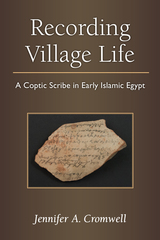
An award-winning novelist’s vibrant portrayal of the struggle to create a more unified society in medieval Egypt and how this has shaped Egypt today.
Brimming with intrigue, adventure, and romance, Al-Qata’i: Ibn Tulun’s City Without Walls tells the epic story of visionary Egyptian leader Ahmad Ibn Tulun who built Al-Qata’i (now Cairo) into a thriving multicultural empire.
The novel begins with the rediscovery of the Ibn Tulun Mosque in 1918 and recounts Ibn Tulun’s life and legacy in the ninth and tenth centuries. Bassiouney presents Ibn Tulun’s benevolent vision to unify all Egyptians in a new city, Al-Qata’i. He becomes so focused on his vision, however, that he cannot see the impact it has on his family or the fate of Egypt. When a betrayal leads to his demise, the rival Abbasid caliph threatens to regain control of Al-Qata’i. In the aftermath of Ibn Tulun’s death, his daughter Aisha emerges as a pivotal figure, bravely taking a stand against the Abbasids to preserve her life, the city, and the iconic mosque.
This contemporary Egyptian writer forces us to consider universal themes, such as diversity and equality, through both a historical and intercultural lens that enriches our understanding of these issues in our world today.

Papyrological analysis of Aristophanes’ documents, within the context of the textual record of the village, shows a new and divergent scribal practice that reflects broader trends among his contemporaries: Aristophanes was part of a larger, national system of administrative changes, enacted by the country’s Arab rulers in order to better control administrative practices and fiscal policies within the country. Yet Aristophanes’ dossier shows him not just as an administrator, revealing details about his life, his role in the community, and the elite networks within which he operated. This unique perspective provides new insights into both the micro-history of an individual’s experience of eighth-century Theban village life, and its reflection in the macro social, economic, and political trends in Egypt at this time.
This book will prove valuable to scholars of late antique studies, papyrology, philology, early Islamic history, social and economic history, and Egyptology.
READERS
Browse our collection.
PUBLISHERS
See BiblioVault's publisher services.
STUDENT SERVICES
Files for college accessibility offices.
UChicago Accessibility Resources
home | accessibility | search | about | contact us
BiblioVault ® 2001 - 2024
The University of Chicago Press









